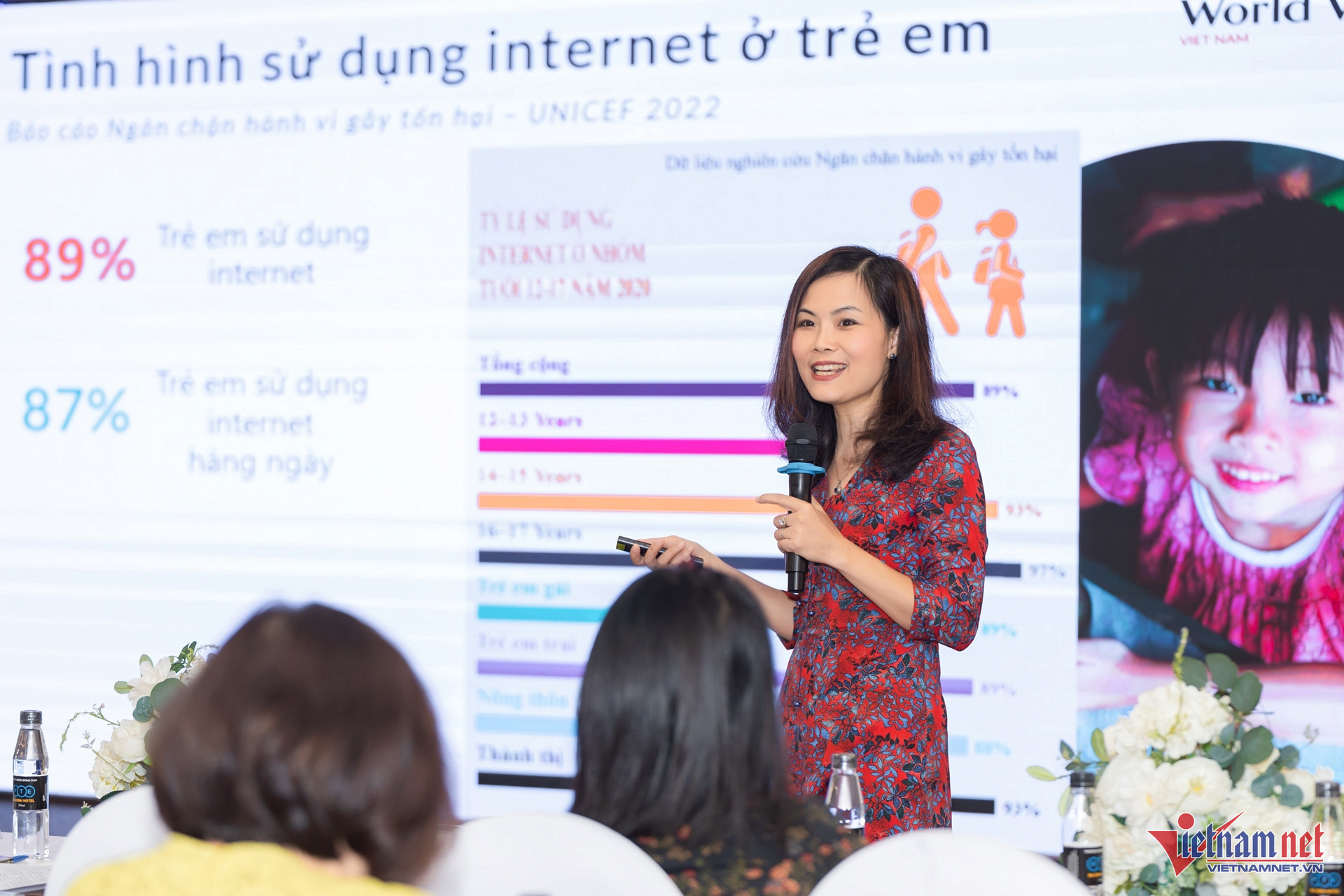
The role of media and journalism in safeguarding children online was the key topic discussed at a workshop held by the Vietnam Information Security Association (VNISA) recently in Hanoi.
VNISA’s deputy chair and vice president of the Vietnam Children's Protection Club in Cyberspace, Ngo Tuan Anh, cited a survey as showing that 40 percent of children feel unsafe when using the Internet, and over 70 percent of children have had undesirable experiences when using the internet.
According to a project on preventing harmful behaviors in Vietnam, conducted by UNICEF (the United Nations Children's Fund) , Interpol, and Ecpat, 1 percent of Internet users in Vietnam aged 12-17 are victims of online sexual exploitation and abuse.
"Though 1 percent seems low, the figure is high compared with the total population of Vietnam. This means that 94,000 children have faced these problems,” Anh said.
Commenting about the role of the press and communications, the representative from VNISA said many press agencies have helped raise people’s awareness, by discovering and reporting child abuse behaviors.
However, there are still articles and publications which provide unverified information about children, thus unintentionally violating children's privacy. This may negatively affect children's mental health.
According to Phan Thi Kim Lien from World Vision Vietnam, in order to find out if the impact on children is negative or positive, it is necessary to consider nine principles in communications: inclusiveness, accessibility, personal data protection, humanity, transparency, intellectual property, security and safety, reliability, sustainable development, and environmental protection.
With this approach, Lien pointed out that in addition to many positive influences, such as educating children and promoting social behavior standards, the press can also negatively affect their mental health.
Six common risks have been cited, including harmful content, risky behavior, personal information, stereotyping, low body confidence, and blaming.
The World Vision has called on press agencies to apply measures to help protect children online. For instance, when reporting attacks, fights and accidents, it is necessary to hide parts of images with violent characteristics to mitigate the impact on children.
Journalists need to be cautious when reporting news about social evils, because their stories and images may lead to the risk that children imitate adult behaviors and commit suicide.
Van Anh